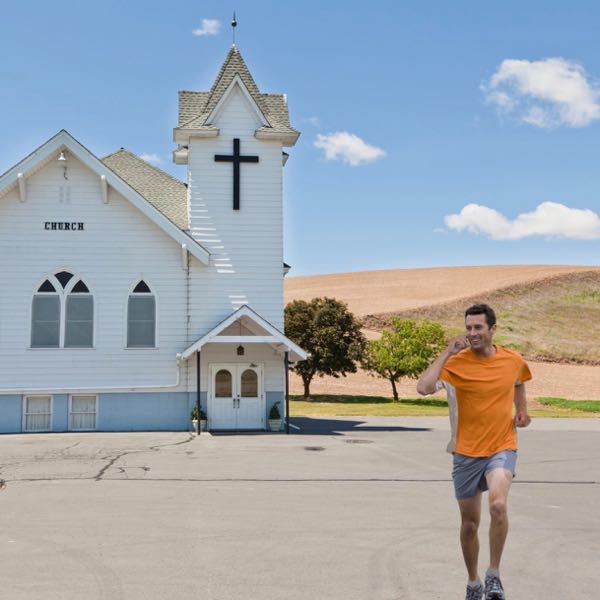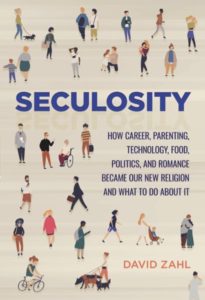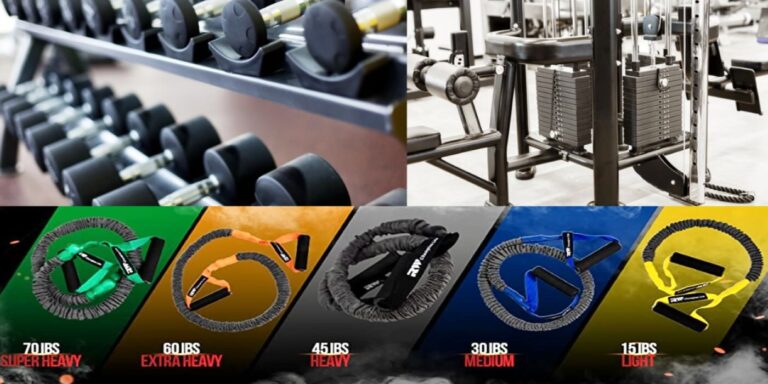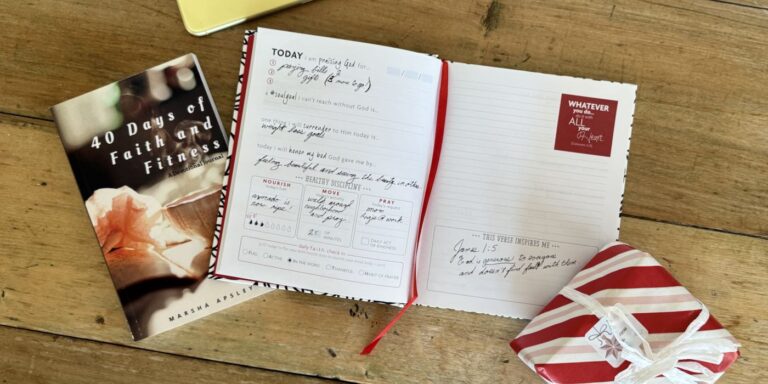 By David Zahl
By David Zahl
From Seculosity: How Career, Parenting, Technology, Food, Politics and Romance Became Our New Religion and What to Do About It by David Zahl copyright © 2019 Fortress Press. Reproduced by permission.
My friend wasn’t training for a marathon. That would have made more sense. It was Sunday, and he was about a week out from running in his first 10K race. On his route that morning, he wanted me to know, he had passed three gyms with full parking lots, five packed fitness studios, and six nearly empty churches.
Thanks for the report, I said, disingenuously. I hope you trip and fall next week. He laughed and hung up.
He hadn’t called just to needle his religious friend. A few days previous we’d had a conversation about the burgeoning SoulCycle phenomenon. A mutual acquaintance of ours had become an instructor and kept inviting us to come down to the “Soul Sanctuary” and do a class. I was afraid of the soreness I knew would result, but my buddy took the plunge and immediately got weirded out by the overt religiosity—and this coming from a guy well acquainted with fitness fanatics.
SoulCycle may be the most popular fitness company to appeal to the spiritual aspirations of its customers—their classes even follow a discernible liturgy—but they are far from the only one. Americans have been religious about exercise since Richard Simmons first started sweatin’ to the oldies, but in the last decade or so, marketers have clearly gotten the memo and made the association explicit. Sunday mornings no longer present a toss-up between church and the gym; the gym now is church. You pay your tithe, you pass the peace, you follow the same rituals and sit under the same symbols, maybe even reach endorphin-induced transcendence, what athletes call the zone.
 Alongside the spiritualization of exercise, a related trend has emerged: extreme exercise. Boutique outfits like CrossFit and hot yoga demand fierce commitment to extraordinarily punishing routines, promising to transform not just the body but the entire person. They are philosophies of life as much as philosophies of health, with the creeds to prove it. As such, they don’t seek members but converts. Try our program and it will not only tone your abs but your personality. You’ll be transformed into a healthier and happier you, the ads tell us, sounding a whole lot like televangelists. As the joke goes, how do you know if someone does Cross-Fit? Don’t worry, they’ll tell you.
Alongside the spiritualization of exercise, a related trend has emerged: extreme exercise. Boutique outfits like CrossFit and hot yoga demand fierce commitment to extraordinarily punishing routines, promising to transform not just the body but the entire person. They are philosophies of life as much as philosophies of health, with the creeds to prove it. As such, they don’t seek members but converts. Try our program and it will not only tone your abs but your personality. You’ll be transformed into a healthier and happier you, the ads tell us, sounding a whole lot like televangelists. As the joke goes, how do you know if someone does Cross-Fit? Don’t worry, they’ll tell you.
It is no coincidence that these programs are expensive. Those with money to spare crave the burning of calories and are willing to pay a premium for pain. Think about it: if you feel guilty about your privilege, then the more intense and demoralizing the activity feels, and the more it resembles hard labor, the better. Which explains why sledgehammers, truck tires, and a general lack of air conditioning feature so prominently: the debasement doubles as a form of atonement. Puritanical would apply if that word didn’t also connote a belief in a gracious God. A better term would be Spartan, since the faith on offer is in one’s own potential.
Welcome to what may be the most transparently absurd wing of contemporary righteousness: the seculosity of leisure.
 PLAY NOW!
PLAY NOW!
Indoctrination into the seculosity of leisure begins well before our first workout.
Anecdotal evidence supports this. The next time you find yourself at a playground, cozy up to a parent of a young child and ask them about playtime. Odds are, they’ll give you a litany about how overscheduled their kids’ lives are compared to when they were growing up, how after-school extracurriculars start earlier and earlier, the requirements ever more aggressive.
Sadly, the closer you look into the resurgence of play, the harder it is to shake the suspicion that, in the name of restoring play as a vital element of childhood (and life), we are actually digging ourselves deeper into seculosity, undermining the very thing we’re trying to salvage.
What we have here is a textbook example of how a spiritual practice becomes a religious one, something helpful turns into something justifying, something grace-based sours into some- thing legalistic. It mirrors the way that many Christians experience regular churchgoing or individual quiet times. What starts out as a respite turns into a ladder.
 RELAX
RELAX
Just think about all the times when you’ve been told to “just relax.” Was relaxation your first reaction?
If you are one of those rare beasts who answers in the affirmative, then poll your Type A neighbors on what they do to unwind. They’ll more than likely give you a list of reasons why downtime isn’t an option right now. They may even do what many well-meaning Christians do: embrace a mandatory day of rest while dodging its existential punch by finding another, more ostensibly holy pursuit to occupy them on their day off. They simply replace one form of self-justification with another. Instead of making a contribution at our desk, we make a contribution on our bicycle, or with our kids, or at our church. Anything but sit still (“and know that I am God”!).
We may be meting out comfort to ourselves on the basis of our efforts, but the rest Jesus conveys stems from how God sees us, not how we see ourselves.
QUESTIONS FOR PERSONAL REFLECTION OR GROUP DISCUSSION
1. David describes a reality that is increasingly pervasive in our culture. Gyms are busy on Sunday while many traditional Christian churches are not. What do gyms offer that draw people to them even on an early Sunday morning? What can churches do to attract more people?
2. Consider the difference between, “How do you know if someone does Cross-Fit? Don’t worry, they’ll tell you” and a common timidity of Christians, “I don’t want to say anything or force my faith on anyone – I may offend them. They’ll just see Jesus in me.” What motivates people to behave one way or the other? What end of the spectrum do you find yourself?
3. Describe your ‘day of rest’. When was the last time you fully took time to be still? Imagine and describe what it would be like to experience a deep rest and presence with God. What three words would God use to convey how He sees you at this time in your life? How is a lifestyle approach to your faith different from having religion?
This article is an excerpt from chapter 6 of the book Seculosity: How Career, Parenting, Technology, Food, Politics and Romance Became Our New Religion and What to Do About It.
Get the book so you can read the rest of the chapter and the entire book.


 PLAY NOW!
PLAY NOW! RELAX
RELAX




